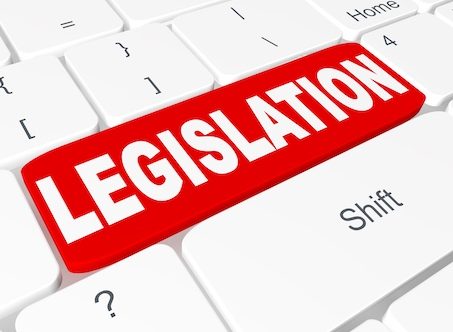“The Generative AI Copyright Disclosure Act would create a civil penalty of at least $5,000 for any person who creates or alters a training dataset that incorporates copyrighted works without disclosing the identity of those works to the Register of Copyrights.”
 On April 9, Representative Adam Schiff (D-CA) introduced the Generative AI Copyright Disclosure Act of 2024 into the U.S. House of Representatives. The bill, which would require generative artificial intelligence (AI) platforms to disclose their use of copyrighted works in training AI models with retroactive effect, comes after months of growing concerns by the global creative community over the misappropriation of original works of authorship by companies collecting such content without prior authorization.
On April 9, Representative Adam Schiff (D-CA) introduced the Generative AI Copyright Disclosure Act of 2024 into the U.S. House of Representatives. The bill, which would require generative artificial intelligence (AI) platforms to disclose their use of copyrighted works in training AI models with retroactive effect, comes after months of growing concerns by the global creative community over the misappropriation of original works of authorship by companies collecting such content without prior authorization.
Bill Would Establish Civil Penalty for Failure to Disclose Use of Copyrighted Works
If enacted as drafted, the Generative AI Copyright Disclosure Act would create a civil penalty of at least $5,000 for any person who creates or alters a training dataset that incorporates copyrighted works without disclosing the identity of those works to the Register of Copyrights. Such persons would be required to submit to the Register a “sufficiently detailed summary” of any copyrighted works used to create or alter the dataset, along with the uniform resource locator (URL) address for training datasets that are publicly available online when the notice is submitted to the Register.
The disclosure requirements and other provisions of this bill would become effective 180 days after the bill is passed into U.S. law. At that point, generative AI platform providers who have publicly released their AI systems trained on copyrighted content would have 30 days to submit the required notice to the Register of Copyrights in order to avoid the civil penalty available under the law. Anyone releasing a generative AI system trained on copyrighted content after the bill’s effective date would similarly have 30 days from the date of public release to report the use of copyrighted content to the Register. The bill’s language also directs the Register to issue regulations that implement the copyright notice requirement, and to maintain a public database available online containing the substance of each notice filed with the Register.
The previous year has seen a series of public hearings in both houses of Congress that have explored a range of issues related to the impact of generative AI systems on legal protections under U.S. copyright law. Last May, the House IP Subcommittee hosted several creative professionals, including Ashley Irwin, President of the Society of Composers and Lyricists, and Jeffrey Sedik, President and CEO of the PLUS Coalition for visual artists, who voiced their concerns about the unauthorized use of their original works to train generative AI systems. Then last July, the Senate IP Subcommittee heard testimony from Kayla Ortiz, a visual artists’ advocate who has also created artwork for several Marvel films. Ortiz noted that many professionals in the creative community were abstaining from the use of generative AI platforms because of the rampant use of copyrighted material without authorization from their creators.
Fair Use Debate Around GAI Platforms Heats Up
While the Generative AI Copyright Disclosure Act does not itself impact the application of fair use doctrine in the generative AI context, disagreements between attorneys formerly representing the U.S. Copyright Office could indicate different views on copyright liability at the agency charged with implementing the provisions of this bill. Last May’s House IP Subcommittee hearing featured testimony from Sy Damle, former General Counsel to the Copyright Office serving under both Presidents Barack Obama and Donald Trump, who likened the process of training generative AI platforms to human education. This prompted a response from Jon Baumgarten, former General Counsel to the Copyright Office under President Gerald Ford, who wrote a letter to the House IP Subcommittee stating that Damle’s viewpoint on the application of fair use doctrine “may simply be wrong.”
The introduction of the generative AI bill by Schiff comes a few days after The New York Times published an expose detailing the potentially illicit business activities of major tech firms, including Google and Meta, in the training of their own generative AI platforms. The practice of unauthorized uses of copyrighted content to train generative AI models has not only spawned several lawsuits in U.S. district court, but regulators in France recently fined Google €250 million ($271 million USD) for breaching a June 2022 settlement for Google’s unauthorized use of online news content to train its own generative AI platforms.
Schiff’s Generative AI Copyright Disclosure Act has already received broad support from nearly two dozen organizations representing creators’ interests including the American Society of Composers, Authors and Publishers (ASCAP), Screen Actors Guild-American Federation of Television and Radio Artists (SAG-AFTRA), Authors Guild, Recording Industry Association of America (RIAA), Professional Photographers of America, and International Alliance of Theatrical Stage Employees (IATSE).

![[IPWatchdog Logo]](https://ipwatchdog.com/wp-content/themes/IPWatchdog%20-%202023/assets/images/temp/logo-small@2x.png)

![[Advertisement]](https://ipwatchdog.com/wp-content/uploads/2024/04/UnitedLex-May-2-2024-sidebar-700x500-1.jpg)
![[Advertisement]](https://ipwatchdog.com/wp-content/uploads/2024/04/Patent-Litigation-Masters-2024-sidebar-700x500-1.jpg)

![[Advertisement]](https://ipwatchdog.com/wp-content/uploads/2021/12/WEBINAR-336-x-280-px.png)
![[Advertisement]](https://ipwatchdog.com/wp-content/uploads/2021/12/2021-Patent-Practice-on-Demand-recorded-Feb-2021-336-x-280.jpg)
![[Advertisement]](https://ipwatchdog.com/wp-content/uploads/2021/12/Ad-4-The-Invent-Patent-System™.png)






Join the Discussion
2 comments so far. Add my comment.
Anon
April 12, 2024 03:19 pmTo a point here, the analogy to human learning IS wrong, but that has nothing to do with training BEING Fair Use.
Anon
April 12, 2024 03:17 pmVirtue signaling – vomit style.
Add Comment